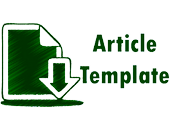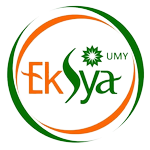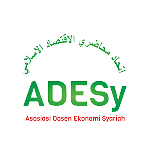Making Indonesia as Integrated Halal Zone and World Halal Sector Hub Through the Implementation of Halal Supply Chain
DOI:
https://doi.org/10.18196/jiebr.v1i1.11529Keywords:
Halal Supply Chain, Integrated Halal Zone, Halal SectorAbstract
Halal supply chain management is one of the implementations that has been undertaken by several countries in the world, and even countries with a majority non-Muslim population. The halal sector in the world has developed quite rapidly. It has penetrated to all fields, one of which is Islamic banking and finance which has evolved quite well in helping the economy of a country. The research used in this research is descriptive qualitative research as an illustration in the Halal Supply Chain process that has been used by several states that have successfully implemented this system. Halal Supply Chain is a cycle that has been set by each country and has standards that guide the processing of a product, so it reaches the consumer. Indonesia is determined to become the centre of the halal world through the implementation of the halal supply chain in the form of Integrated Halal Zone (IHZ), IHZ is one of the functions to encourage the halal industry to develop and be able to compete with other countries quickly. Additionally, the Indonesian Ulema Council and the Ministry of Religion can easily oversee halal product standards from upstream to downstream. Hopefully the results of this research will contribute to the academic world and practitioners of Islamic economics.
References
Ab, T. S. (2015). Halal Supply Chain Critical Success Factors : A Literatur Review. Journal of Islamic Marketing, 34-45.
Achamad. (2018, April 4). Indonesia Kalah dengan Malaysia dan Jepang dalam Halal Supply Chain. Retrieved July 8, 2020, from Indonesia: https://shariahnews.com/post
Akbarizan, A., Lestari, F., Hertina, H., Zulkifli, Murhayati, S., & Absor. (2018). Bisnis Produk Halal Analisa Implementasi Rantai Pasok Produk Halal di Australia. Yogyakarta: Kalimedia.
Baharudin, S., Ilyas, & Desa. (2011). Tracking and Tracing Technology for Halal Product Integrity Over the Supply Chain. International Conference on Electrical Engineering and Informatics (pp. 1-12). Bandung: Interantional Conference.
Bernadhetta, V. K., Anita, I., & Ida, G. (2020). Halal Supply Chain Management dalam Optimalisasi Penerapan Sertifikasi Halal UMKM. Performa : Media Ilmiah Teknik Industri, 113-120.
Bonne, K., & W, V. (2008). Religious Values Informing Halal Meat Production and the Control and Delivery of Halal Credence Quality. Agriculture and Human Values, 35-47.
Carrie, A. A., & Olufunabi, O. I.-O. (2017). Halal Certification Organizations in the United Kingdom. Journal of Islamic Marketing, 113-124.
Elias, Othamn, & Yaacob. (2017). Relationship of Spirituality Leadership Style and SMEs Performance in Halal Supply Chain. International Journal of Supply Chain Management, 166-176.
Feriyanto N, Saleh, C., Ulandari, S., & Md, D. B. (2016). Supply Chain Framework for Selling Halla Meat in Retail Business : A Case Study. International Business Management, 4684-4689.
Hassa, W. A., Ahmad, R. M., Marjudi, S., Hamid, S., & Zainudddin , N. M. (2017). The Implementation Framework of Halal Supply Chain Management Systems. Indian Journal of Science and Technology, 1-9.
IIUM. (2008). HALAL INDUSTRY MASTER PLAN (2008 – 2020). Gombak Malaysia: IIUM.
Indonesia, C. (2019, April 30). Sertifikasi Halal di Tangan Kemenag, MUI Masih Berperan Besar. Jakarta, DKI Jakarta, Indonesia.
Indonesia, C. (2019, May 6). Tak Lagi MUI, Sertifikat Halal Kini Resmi Diterbitkan Kemenag. Jakarta, DKI Jakarta, Indonesia.
Indonesia, C. (2020, September 3). Biaya Sertifikasi Halal Gratis ? Ini Penjelasan BPJPH. Jakarta, DKI Jakarta, Indonesia.
Kotler, P., & Kevin, L. K. (2007). Manajemen Pemasaran. In P. Kotler, Manajemen Pemasaran (pp. 78-87). Jakarta: Indeks.
Maranda. (2020). Indonesia Jadi Importir Terbesar Produk Halal di Dunia. Jakarta: Tempo.
Marco, T., Jack, G. A., & Maznah , C. G. (2012). Principles in halal supply chain management. Journal of Islamic Marketing, 34-45.
Mohammadian, F., & B, H. (2015). Halal Cosmetics Supply Chain - A Conceptual Model. International Journal Supply Chain Management, 33-42.
Nor, M. R., M, L. K., Ismail, M. N., & Nor, M. N. (2016). Critical Success Factors of Halal Supply Chain Management from the Perspective of Malaysian Halal Food Manufactures. Nigerian Chapter of Arabian Journal of Business and Management Review, 1-23.
Omar, E. N., & Jaafar, H. S. (2011). Halal Supply Chain in the Food Industry, A Conceptual Model. IEEE Symposium on Business, Engineering and Industrial Applications (ISBEIA), 384-389.
Permana. (2019). MUI Ingin Rebut Kembali Otoritas Sertifikat Halal, Bagaimana di Malaysia ? Jakarta: Detik.com.
Salaehudin, I., & Mukhlish, B. M. (2012). Pemasaran Halal : Konsep, Implikasi dan Temuan di Lapangan. Jakarta: Lembaga Penerbit Fakultas Ekonomi UI.
Shah , A., & Mohamed, S. (2011). Applying the Theory of Planned Behavior 9TPB) in Halal Food Purchasing. International Journal of Commerce and Managment, 8-20.
Soon, J. M., Chandia, Mahmood, & Regenstein, J. M. (2017). Halal Intergrity in the Food Supply. British Food Journal, 39-51.
Statistik, B. P. (2011). Penduduk Menurut Wilayah dan Agama yang dianut. Jakarta: Badan Pusat Statistik.
Syawal, R. (2019). Bagaimana Konsepsi Logsitik Halal di Era 4.0. Jakarta: Shariahnews.com.
The , D., & Economy, I. (2019). State of the Global Islamic Economy Report. Doha: Others.
Tieman, M. (2011). The application of Halal in supply chain management: inâ€depth interviews. Journal of Islamic Marketing, 34-46.
Tjiptono, Fandy, & Anastasia, D. (2003). Total Quality Manajemen. Yogyakarta: Andy.
Umar, H. (1997). Study Kelayakan Bisnis. In H. Umar, Study Kelayakan Bisnis (pp. 45-49). Jakarta: Gramedia Pustaka Utama.
Waharini, F. M., & Purwantini, A. (2018). Model Pengembangan Industri Halal Food di Indonesia. Muqtashid : Jurnal Ekonomi dan Perbankan Syariah, 1-13.
Zaroni. (2016, April 17). Jalan Panjang Logistik Halal di Indonesia. Retrieved September 5, 2020, from Jalan Panjang Logistik Halal di Indonesia: https://supplychainindonesia.com
Downloads
Published
How to Cite
Issue
Section
License
Copyright (c) 2021 Journal of Islamic Economic and Business Research

This work is licensed under a Creative Commons Attribution-NonCommercial 4.0 International License.
Journal of Islamic Economic and Business Research has CC-BY NC or an equivalent license as the optimal license for the publication, distribution, use, and reuse of scholarly work for non-commercial purpose. The non-commercial use of the article will be governed by the Creative Commons Attribution license as currently displayed on Creative Commons Attribution-NonCommercial 4.0 International License
Creative Commons License




